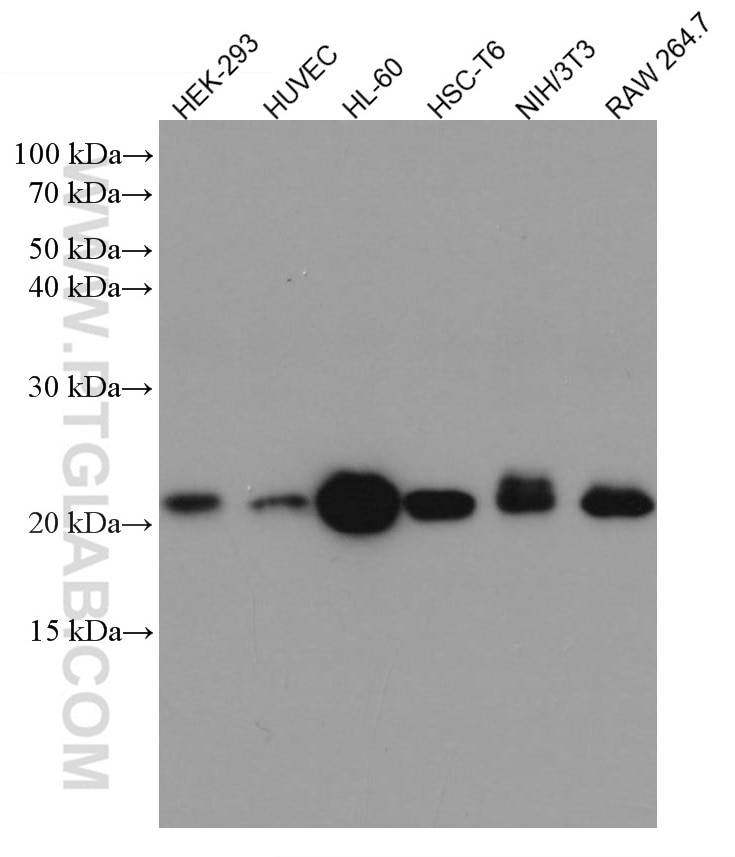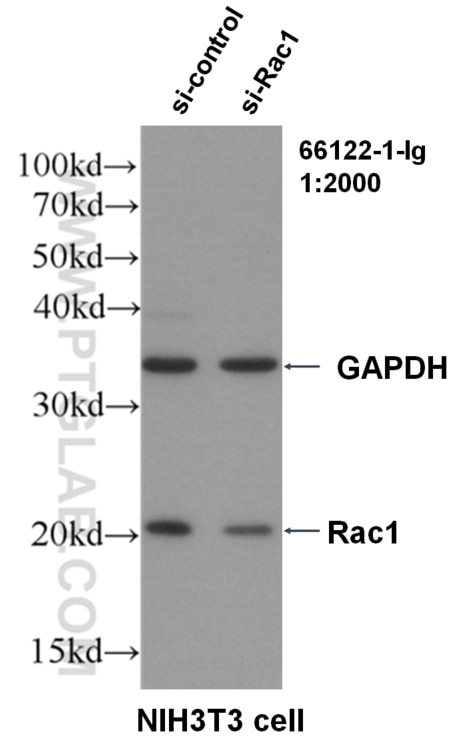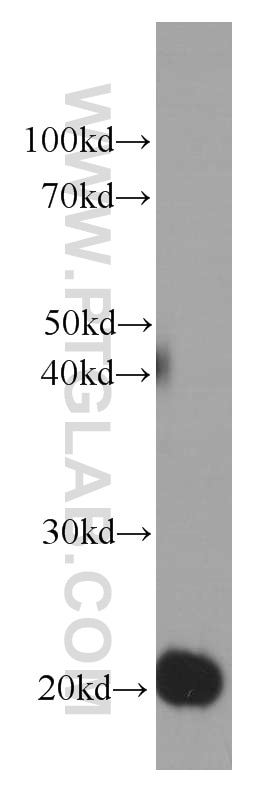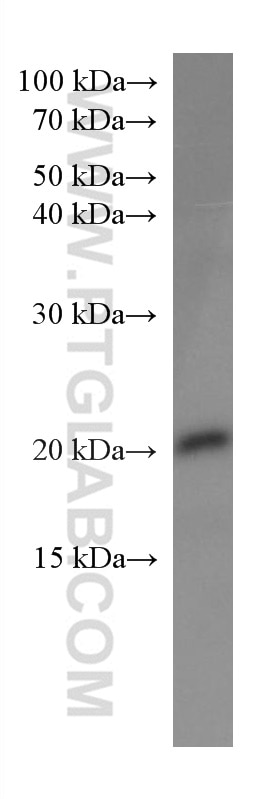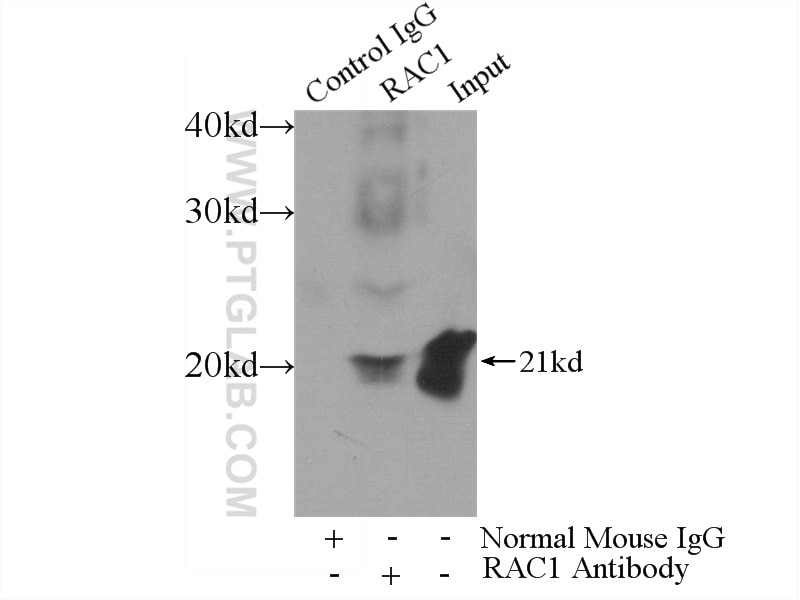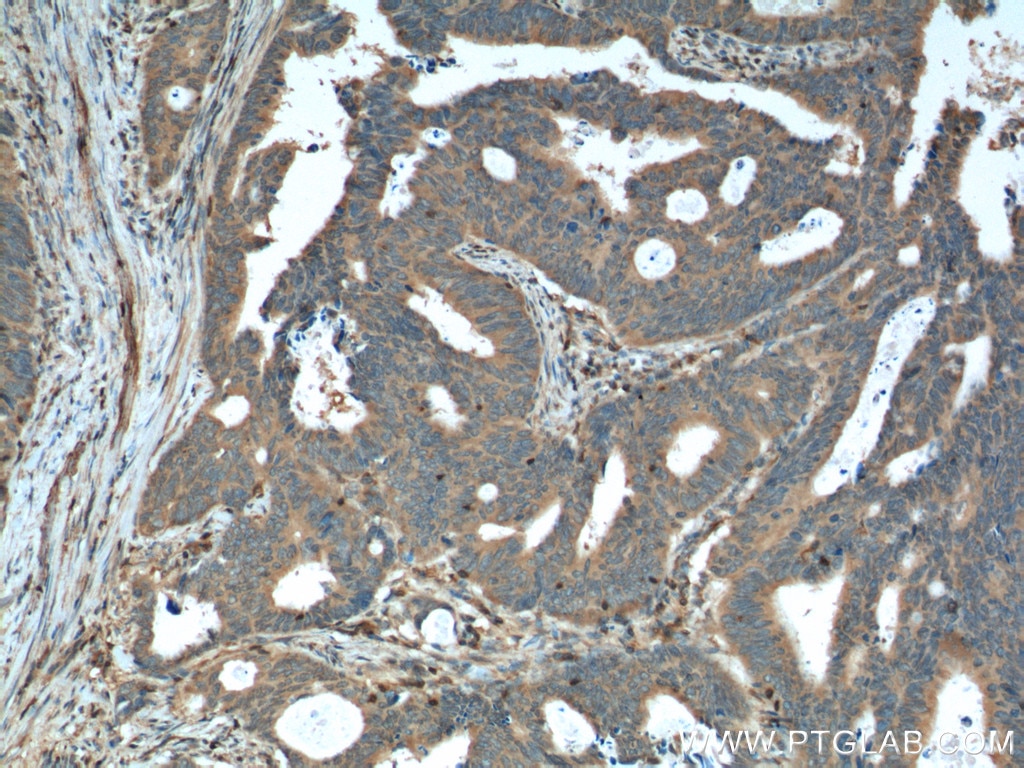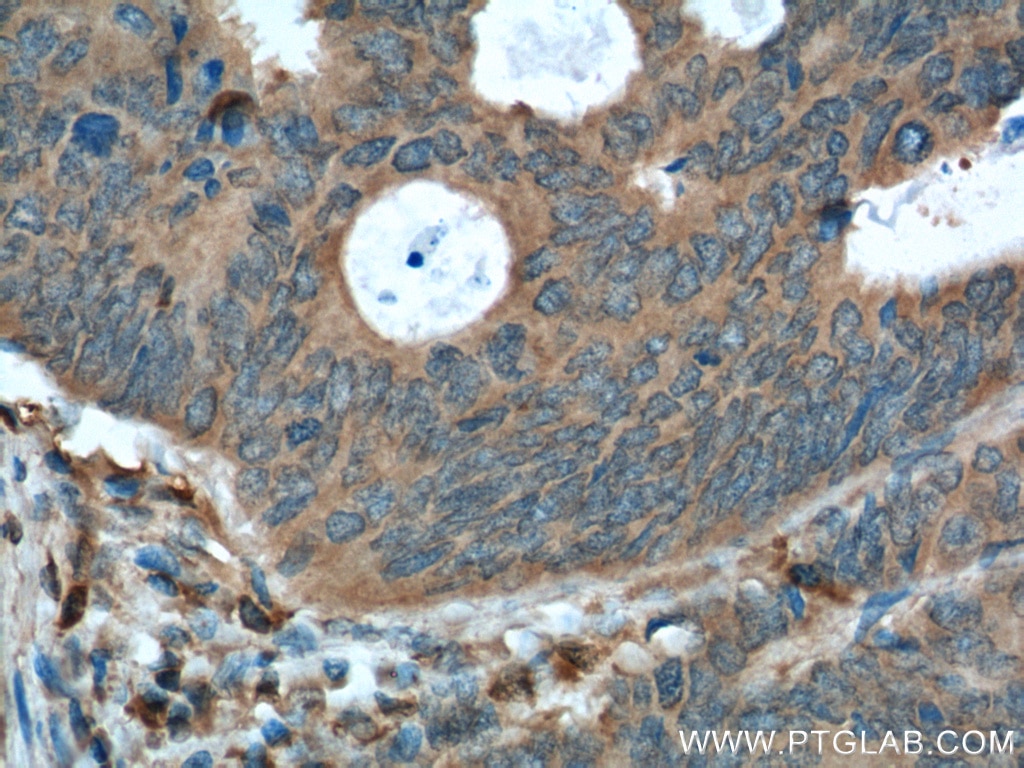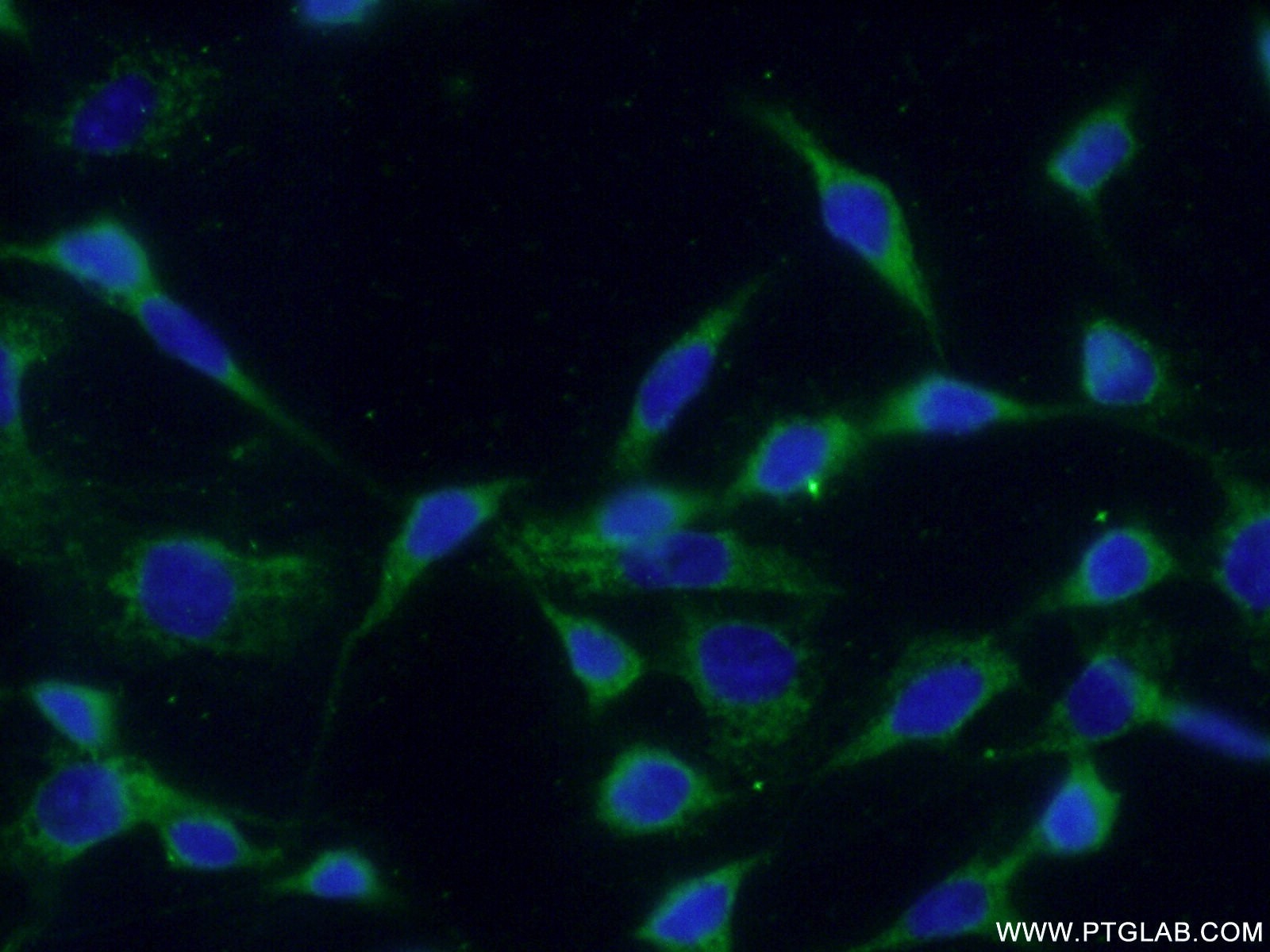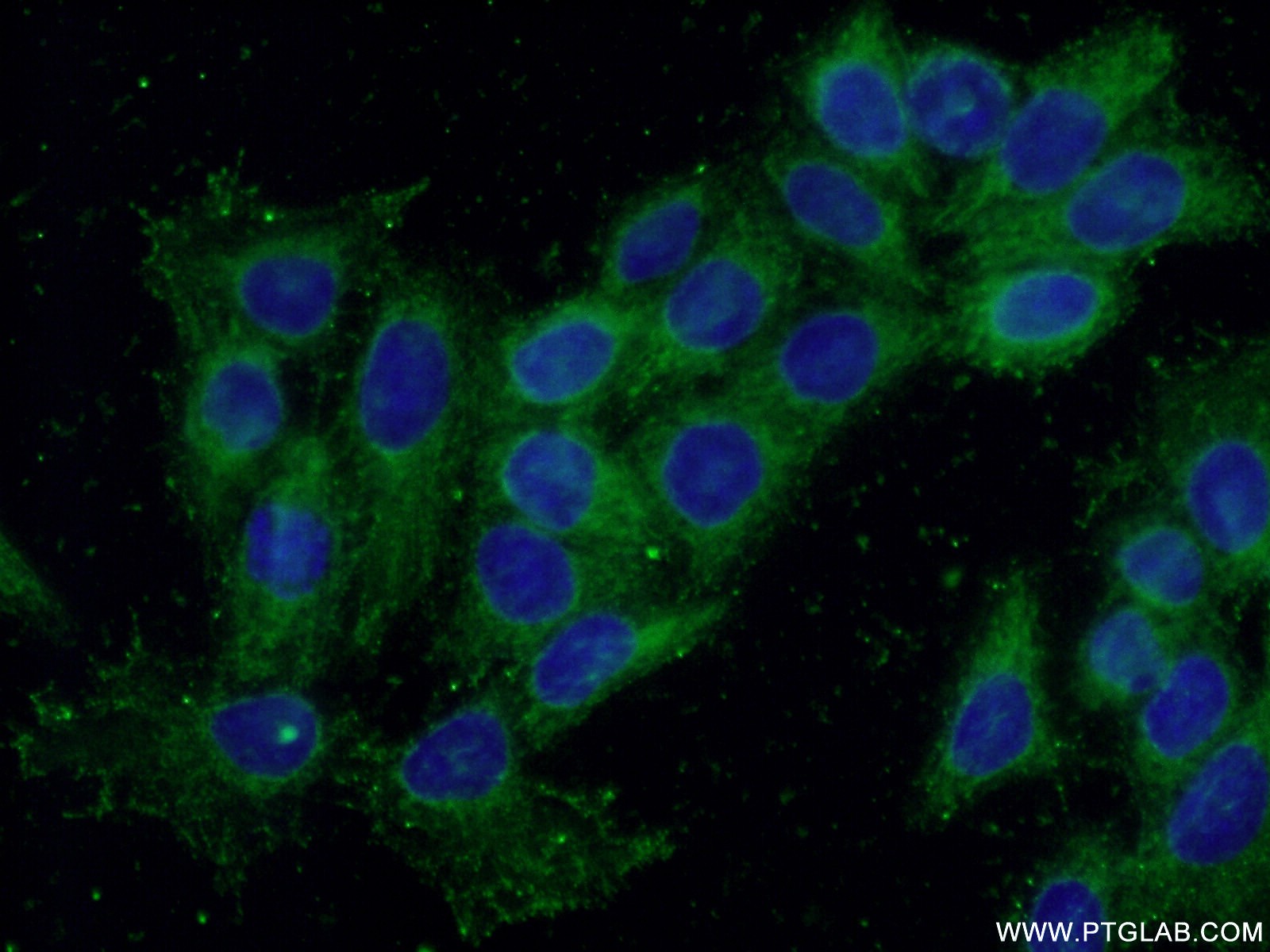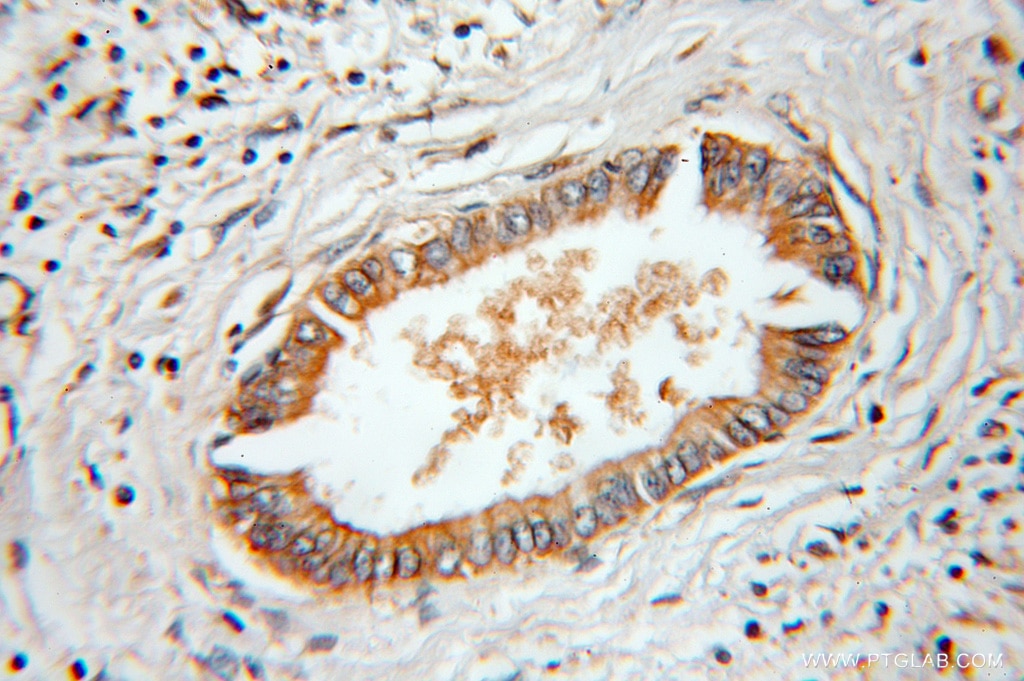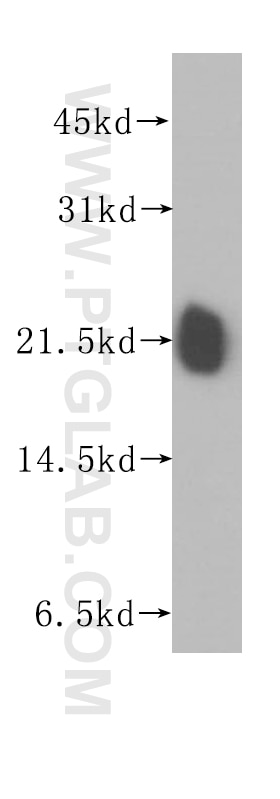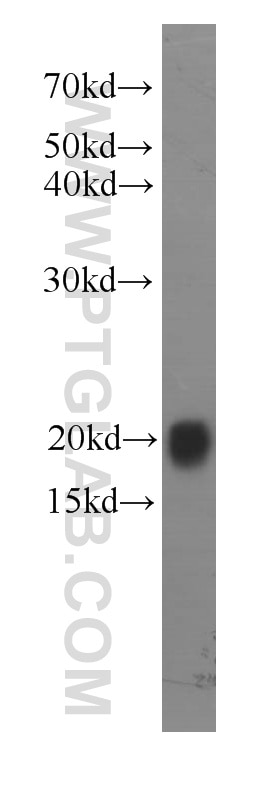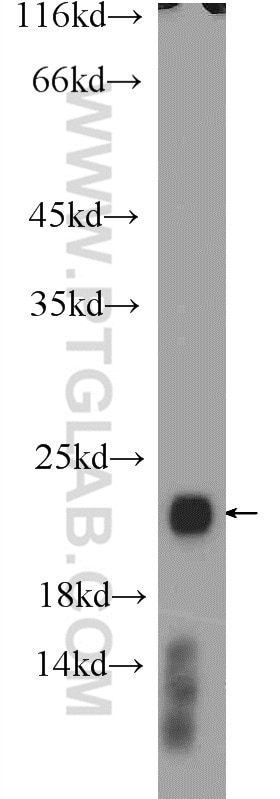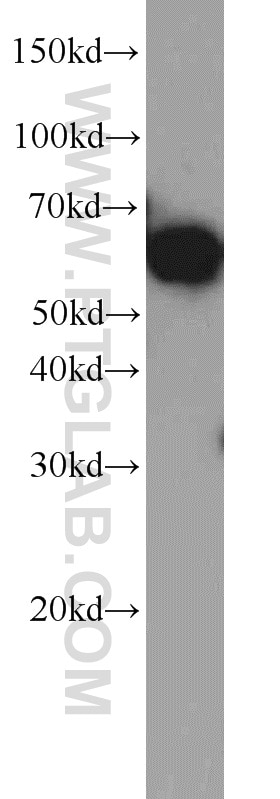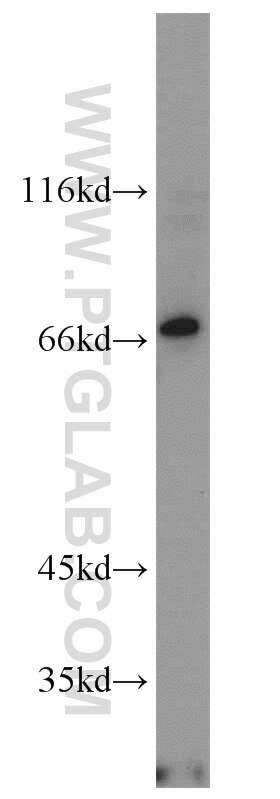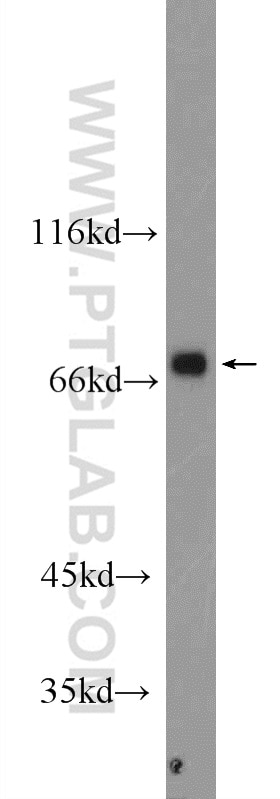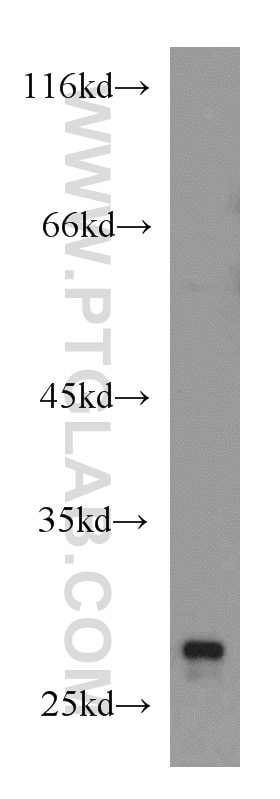- Featured Product
- KD/KO Validated
RAC1 Monoklonaler Antikörper
RAC1 Monoklonal Antikörper für IF, IHC, IP, WB, ELISA
Wirt / Isotyp
Maus / IgG2b
Getestete Reaktivität
human, Maus, Ratte und mehr (1)
Anwendung
WB, PLA, IP, IHC, IF, CoIP, ELISA
Konjugation
Unkonjugiert
CloneNo.
4A4B11
Kat-Nr. : 66122-1-Ig
Synonyme
Galerie der Validierungsdaten
Geprüfte Anwendungen
| Erfolgreiche Detektion in WB | HEK-293-Zellen, HeLa-Zellen, HL-60-Zellen, humanes Hirngewebe, HUVEC-Zellen, NIH/3T3-Zellen, RAW 264.7-Zellen |
| Erfolgreiche IP | HL-60-Zellen, HL-60-Zellen, HUVEC-Zellen, NIH/3T3-Zellen, RAW 264.7-Zellen |
| Erfolgreiche Detektion in IHC | humanes Kolonkarzinomgewebe Hinweis: Antigendemaskierung mit TE-Puffer pH 9,0 empfohlen. (*) Wahlweise kann die Antigendemaskierung auch mit Citratpuffer pH 6,0 erfolgen. |
| Erfolgreiche Detektion in IF | NIH/3T3-Zellen, HeLa-Zellen |
Empfohlene Verdünnung
| Anwendung | Verdünnung |
|---|---|
| Western Blot (WB) | WB : 1:1000-1:5000 |
| Immunpräzipitation (IP) | IP : 0.5-4.0 ug for 1.0-3.0 mg of total protein lysate |
| Immunhistochemie (IHC) | IHC : 1:50-1:500 |
| Immunfluoreszenz (IF) | IF : 1:50-1:500 |
| It is recommended that this reagent should be titrated in each testing system to obtain optimal results. | |
| Sample-dependent, check data in validation data gallery | |
Veröffentlichte Anwendungen
| KD/KO | See 2 publications below |
| WB | See 25 publications below |
| IHC | See 2 publications below |
| IF | See 7 publications below |
| IP | See 2 publications below |
| CoIP | See 1 publications below |
Produktinformation
66122-1-Ig bindet in WB, PLA, IP, IHC, IF, CoIP, ELISA RAC1 und zeigt Reaktivität mit human, Maus, Ratten
| Getestete Reaktivität | human, Maus, Ratte |
| In Publikationen genannte Reaktivität | human, Hausschwein, Maus, Ratte |
| Wirt / Isotyp | Maus / IgG2b |
| Klonalität | Monoklonal |
| Typ | Antikörper |
| Immunogen | RAC1 fusion protein Ag17779 |
| Vollständiger Name | ras-related C3 botulinum toxin substrate 1 (rho family, small GTP binding protein Rac1) |
| Berechnetes Molekulargewicht | 21 kDa |
| Beobachtetes Molekulargewicht | 21 kDa |
| GenBank-Zugangsnummer | BC004247 |
| Gene symbol | RAC1 |
| Gene ID (NCBI) | 5879 |
| Konjugation | Unkonjugiert |
| Form | Liquid |
| Reinigungsmethode | Protein-A-Reinigung |
| Lagerungspuffer | PBS mit 0.02% Natriumazid und 50% Glycerin pH 7.3. |
| Lagerungsbedingungen | Bei -20°C lagern. Nach dem Versand ein Jahr lang stabil Aliquotieren ist bei -20oC Lagerung nicht notwendig. 20ul Größen enthalten 0,1% BSA. |
Hintergrundinformationen
RAC1b, also named as TC25, belongs to the small GTPase superfamily and Rho family. RAC1 is a plasma membrane-associated small GTPase which cycles between active GTP-bound and inactive GDP-bound states. In its active state, it binds to a variety of effector proteins to regulate cellular responses such as secretory processes, phagocytosis of apoptotic cells, epithelial cell polarization and growth-factor induced formation of membrane ruffles.
Protokolle
| Produktspezifische Protokolle | |
|---|---|
| WB protocol for RAC1 antibody 66122-1-Ig | Protokoll herunterladen |
| IHC protocol for RAC1 antibody 66122-1-Ig | Protokoll herunterladen |
| IF protocol for RAC1 antibody 66122-1-Ig | Protokoll herunterladen |
| IP protocol for RAC1 antibody 66122-1-Ig | Protokoll herunterladen |
| Standard-Protokolle | |
|---|---|
| Klicken Sie hier, um unsere Standardprotokolle anzuzeigen |
Publikationen
| Species | Application | Title |
|---|---|---|
Mol Cell TCR activation directly stimulates PYGB-dependent glycogenolysis to fuel the early recall response in CD8+ memory T cells. | ||
Nat Commun TLR4 signalling via Piezo1 engages and enhances the macrophage mediated host response during bacterial infection. | ||
Circ. Res. Inhibition of KLF5-Myo9b-RhoA Pathway-Mediated Podosome Formation in Macrophages Ameliorates Abdominal Aortic Aneurysm. | ||
Oncogene Smoking-associated upregulation of CBX3 suppresses ARHGAP24 expression to activate Rac1 signaling and promote tumor progression in lung adenocarcinoma. | ||
Cell Chem Biol Phosphorylation of guanosine monophosphate reductase triggers a GTP-dependent switch from pro- to anti-oncogenic function of EPHA4. |
